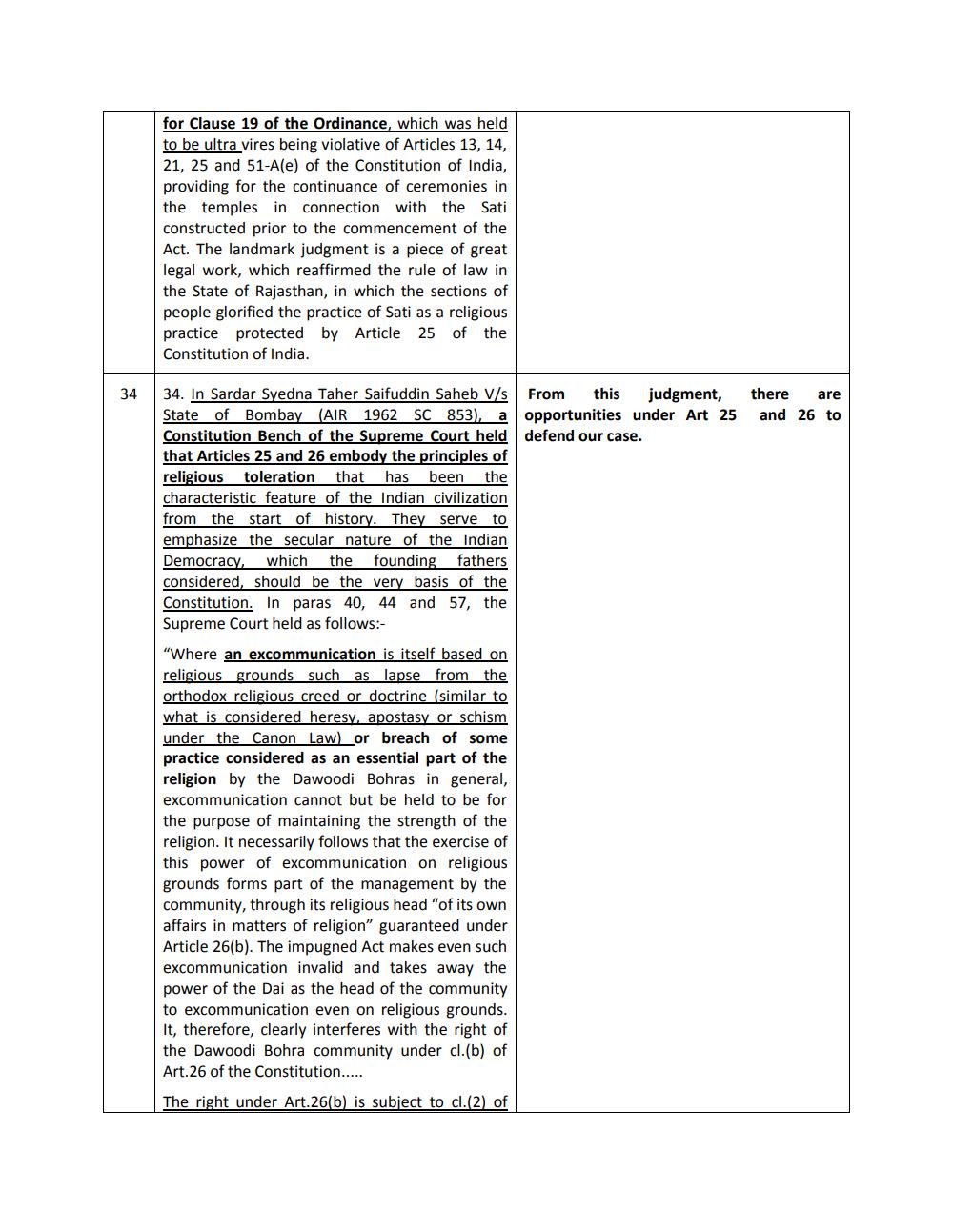________________
for Clause 19 of the Ordinance, which was held to be ultra vires being violative of Articles 13, 14, 21, 25 and 51-A(e) of the Constitution of India, providing for the continuance of ceremonies in the temples in connection with the Sati constructed prior to the commencement of the Act. The landmark judgment is a piece of great legal work, which reaffirmed the rule of law in the State of Rajasthan, in which the sections of people glorified the practice of Sati as a religious practice protected by Article 25 of the Constitution of India.
there are and 26 to
34. In Sardar Syedna Taher Saifuddin Saheb V/S From this judgment, State of Bombay (AIR 1962 SC 853), al opportunities under Art 25 Constitution Bench of the Supreme Court held defend our case. that Articles 25 and 26 embody the principles of religious toleration that has been the characteristic feature of the Indian civilization from the start of history. They serve to emphasize the secular nature of the Indian Democracy, which the founding fathers considered, should be the very basis of the Constitution. In paras 40, 44 and 57, the Supreme Court held as follows:
"Where an excommunication is itself based on religious grounds such as lapse from the orthodox religious creed or doctrine (similar to what is considered heresy, apostasy or schism under the Canon Law) or breach of some practice considered as an essential part of the religion by the Dawoodi Bohras in general, excommunication cannot but be held to be for the purpose of maintaining the strength of the religion. It necessarily follows that the exercise of this power of excommunication on religious grounds forms part of the management by the community, through its religious head "of its own affairs in matters of religion" guaranteed under Article 26(b). The impugned Act makes even such excommunication invalid and takes away the power of the Dai as the head of the community to excommunication even on religious grounds. It, therefore, clearly interferes with the right of the Dawoodi Bohra community under cl.(b) of Art.26 of the Constitution..... The right under Art.26(b) is subject to cl.(2) of




